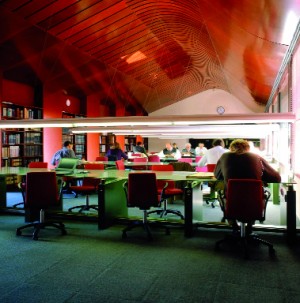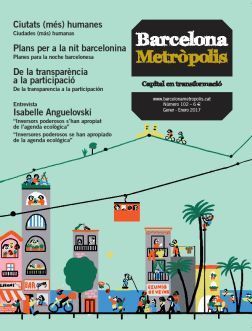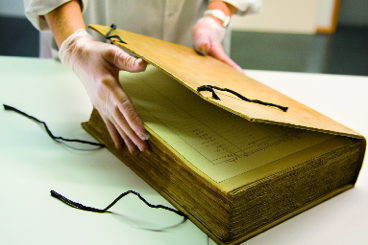Society is demanding more democratic, transparent and participative government. A key factor in policies of transparency and good governance is giving the public access to the documents kept and managed by the public archives.
In the 21st century, now more than ever, archives have become a synonym for and the essence of the memory and the rights of individuals and peoples. Throughout history, archives had always fallen somewhere between the bounds of historical research and the government’s arsenal of documentary evidence, but the new millennium brought a real change in our social structures and the way we see life, a change that has also affected our archives, as our social memory has been democratised and made more inclusive and participatory, giving real access to information as a key part of policies on transparency and good governance.
Today, society is demanding more democratic, transparent and participative government, in light of widespread mistrust of politicians and countless financial scandals. This means having truthful information and systems of documentation management that make it easy to access primary sources, without obstacles or hidden corners.
Laws that are smoothing the way
In recent years, the winds have been more favourable to transparency and freedom of information policies in most countries around the world, as evidenced by the implementation of laws and procedures that aim to defend and encourage the public’s right to know about and to monitor the actions of their governments and, of course, how their taxes are spent.

Public reading room in the Historical Archive of the City of Barcelona (AHCB).Photo: Arxiu Històric de la Ciutat de Barcelona
The recent laws on transparency, freedom of information and good governance that have been passed by the Catalan and the Spanish governments specify the minimum legal requirements that must be met to ensure honest public administration. Both these laws have a similar structure and they apply to a long list of subjects and a broad sphere of influence when it comes to people’s right of access to information and to public documents. Of particular significance are the aspects that relate to government’s active communication strategies and to public freedom of information requests.
Specifically, at several points in Catalonia’s Law 19/2014 on Transparency, Access to Public Information and Good Governance, we are reminded that public bodies are obliged to set up integrated systems to manage documentation, information and data so that these can be used across different levels of government, any document or piece of information can be located, and each document or data set is automatically linked to details on its access and publication (art. 19.3).
On the local government level, and even before some of these laws came into force, the ratification of the Regulation on Access to Barcelona City Council’s Municipal Documentation (2014), which guarantees the right of citizens to access public documents held by any department of the City Council, had a big impact. This regulation also brings the right of access to information into line with other rights or interests that must be safeguarded. It also relates to present-day archives, as it explicitly states that members of the public have a recognised right to access the documents of a file or case currently being processed and, according to both Spanish and Catalan legislation, one no longer needs to apply as an interested party. Furthermore, members of the public do not have to know if the file is being processed by a municipal department or if it has been archived.
Good document management is vital
In this new context, it must be reiterated that documentation management systems can improve the performance and efficiency of the information they handle, as it is not necessary to keep recreating information resources. The data to be made accessible are found in the files and documents that are kept in safe repositories and can thus be considered authentic and reliable. Document management systems add integration and practicality to transparency information.
Document management systems have to work not only with documents or files in the traditional sense of the word. The processes of collection, recording, classification, description, conservation and destruction must now also be applied to all other types of information resources, such as data bases, web content and other materials contained in information systems.
Today, as part of their obligations of transparency and administrative efficiency, public authorities have to work with management system models and standards so that documents can be checked from the moment they are created and throughout their life cycle. These procedures are essential for transmitting information in a secure and controlled manner, within the e-government framework, using digital platforms that ensure the availability and control of documents and their contents.
The Barcelona Municipal Archive uses an integrated model to manage, recover and process the electronic archives that are stored on a digital platform, in a uniform, standardised way: a system designed to make it easier to conserve them and provide secure access to them.
With professional help from the archivists
There are several different ways of looking at the laws on access to documentation or information, because they are not exclusively applicable to a part of the government structure. In most cases, lawyers, administrators, technology experts and archivists have to reach a shared understanding.
Fundamentally, identifying and assessing sets of documentation is still a vital role played by professional archivists, a discipline that puts forward proposals to committees that then approve the criteria for accessing and securing collections of documentation. This aspect is highly regulated in Catalonia and by Barcelona City Council which, based on the new functions of the Document Access, Assessment and Selection committees, is making great strides in incorporating the principles, assumption and methodology needed to define the system for accessing documents.
Before, when no-one really cared or spoke much about access to documentation, it was the archivists who started to become aware of the scale of the issue, and we understood that it was our responsibility to set up the procedures and guarantees required for easier access, at least to the archives that are under our safekeeping and responsibility. In fact, in Catalonia, the previous law on administrative procedure (article 37 of Law 30/1992) only mentions access as it refers to archives and records and this access is subject to a number of very restrictive assumptions. For example, the applicant had to be an interested party in the matter in question, or the file had to be closed.
The road is long but we are on our way
Currently, Barcelona City Council is working on a number of measures designed to give the public better access to public affairs and greater participation in the way they are managed. The transparency and accountability projects (including the Transparency web portal, the Ethical Mailbox and the Office of Transparency and Good Practice) are just some of the activities that are being undertaken with this aim in mind.
In parallel to this, the Council has set up the Advisory Committee for Transparency to monitor and discuss the transparency of local government. The committee is made up of representatives of community action organisations and the relevant council departments, including the Director of the Municipal Archive.
Open access to archives enriches our knowledge of human society, promotes democracy, protects citizens’ rights and enhances the quality of life (Unesco’s Universal Declaration on Archives, 2010).





